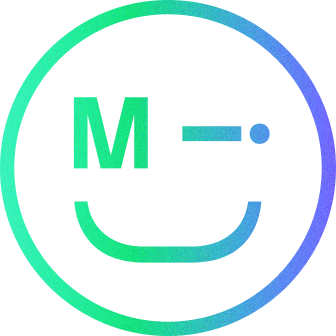User interviews are one of the most commonly used research methods and form an integral part of a researchers tool kit.
Interviews are a type of ‘attitudinal’ research, this means that participants tell us their feedback or what they would do rather than a facilitator observing their actions. User interviews are typically conducted one-on-one with a moderator and a participant; these can either be remote or in-person.
Why user interviews?
In some cases, user interviews can be seen as a ‘go-to’ for any research that needs to be conducted. But interviews are not always the most effective way to capture relevant information. So when should user interviews be used and how can they add value?
User interviews should be conducted to learn more about attitudes towards a particular topic or topics. When done well, user interviews allow us to learn crucial information about our target audience. Topics such as: brand and product awareness, satisfaction, use of competitors, broader context of use and more can be effectively covered within an interview session.
MiC tips
First evaluate whether you may get more insights ‘seeing’ your participants in practice
In some cases, capturing behavioural insights may be more effective than conducting interview sessions. This may mean usability testing, contextual enquiries or field studies. Decide whether you need to see your participants ‘in practice’ and select the most appropriate method. Keep in mind what users say they do, and what they actually do are often two different things.
Provide clear context to your participants
At the start of the session be sure to provide some background to the participants. This is particularly important if your participants have limited context on their reason for being involved. You should explain the purpose of the session, provide an overview of what the session will involve and create an opportunity to answer any questions that the participant may have before proceeding with the session.
Don’t be afraid to ask questions not on the script
Use the script as a guide but don’t be chained to it. Participants can often offer up information that’s unexpected or doesn’t conform to the script. It’s okay to deviate from this to dig deeper into other topics that come up.
Take the time to recruit the right participants
Taking the time to ensure participants are the right fit makes sure everyone gets the most value from the session. This is important to not only ensure no one’s time is wasted but to make sure that your outcomes and insights are not negatively skewed by responses that are not representative of the audience you require.
If you have a niché or specific user group you need to target, consider using a specialist recruiter. Alternatively, if this isn’t an option, ensure that you create a robust screener survey or call that will provide confidence the participant is a good fit.
Create a rapport with the participants
This may seem unnecessary but it’s an important part of becoming a good interviewer. Of course, it’s important to remain professional but taking the time to properly introduce yourself and make light small talk at the beginning of the session can help the participant feel comfortable and at ease. Similarly providing context that there are no right or wrong answers and they can be open to provide their honest feedback (if asking about existing usage) can be crucial to getting the most out of the session.
Conclusion
We find that user interviews can always offer beneficial insights and provide new and unexpected findings that support your team to engage and delight your users. It’s important to conduct user interviews adhering to best practice to gain the most value from the sessions and avoid introducing bias. Drop us a line at: Hello@makeitclear.co.uk to learn more about how we can support you with user research capabilities.
Stay tuned for our next post in this series: Contextual enquiries.
Have a call
We’d love to talk to you about how Make it Clear can support your organisation. Book a call here.

